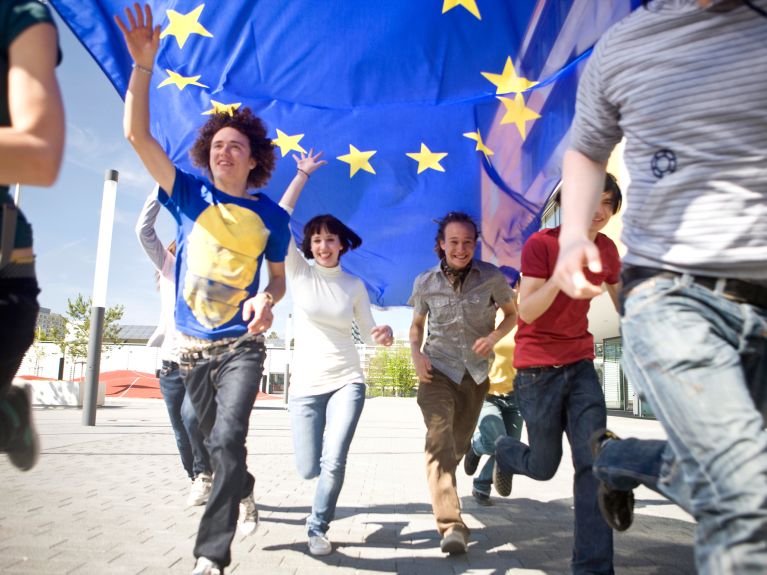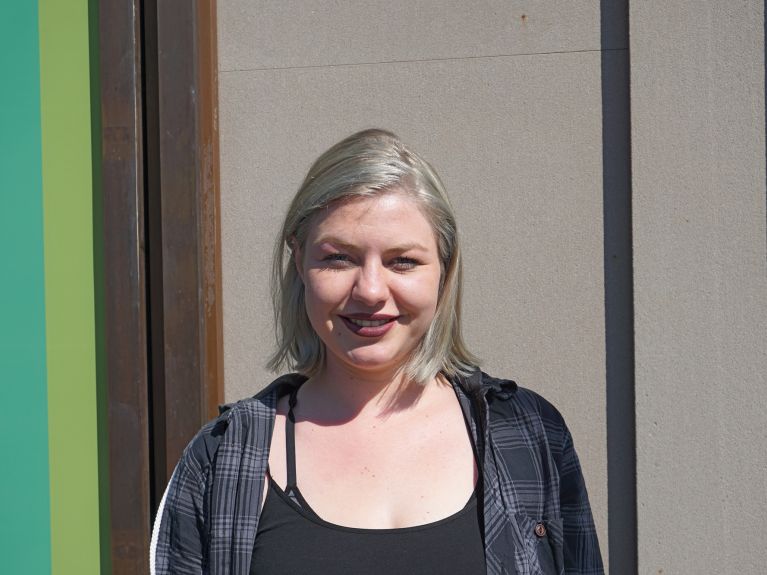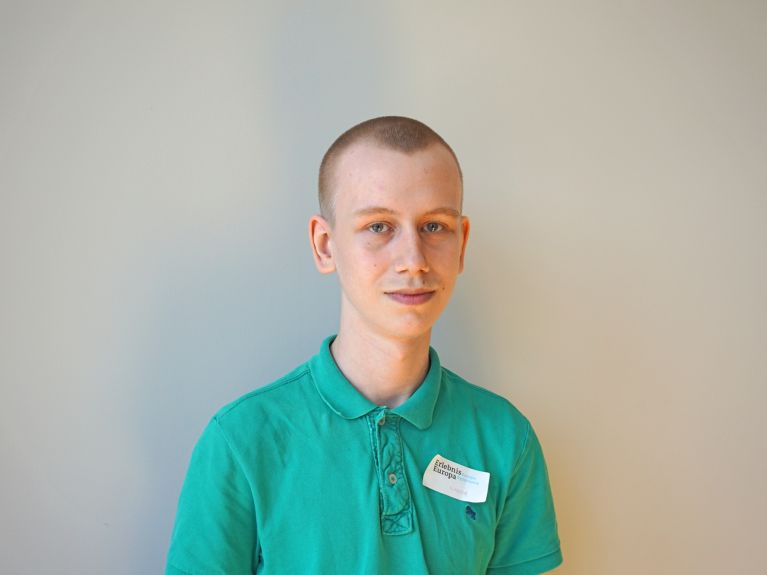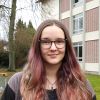Experiencing Europe at first hand
The European Union can also be discovered in Berlin. The “Tour d’Europe” gives school students the chance to experience politics at first hand.

An inconspicuous office building in Berlin, just a stone’s throw from the Brandenburg Gate, is home to the representation of the European Commission in Germany. This is where all the different strands of PR work with the Bundestag (the lower house of parliament), the Bundesrat (the upper house) and the German government come together, and the base from which the European Parliament maintains contact with citizens and organises events. On this morning around 50 school students are waiting in front of the entrance, keen to get to know their city from a different perspective: a European one.
Twice a year, the Berlin Senate Department for Culture and Europe and the non-profit association Bürger Europas (i.e. Citizens of Europe) stage the “Tour d’Europe” – tour of Europe – and invite 250 school students to discover the European Union in Berlin. On this morning the two classes will first be visiting the permanent “Experience Europe” exhibition in the European House. In a 360-degree cinema theatre, students feel as if they are actually attending a plenary session of the European Parliament and take part in simulations that allow them to experience how the EU functions. Their host Leonie Augustin divides the group into fictitious parties and presents them with a topic: the young MPs are to approve a new alcohol consumption regulation.
The students take to their roles with great enthusiasm, and it’s clear that they find the subject interesting. The Social Ecological Party calls for more preventive action to be taken at schools: “Young people are our future and we should invest in them”, they urge. Pupils from the liberal wing argue against bottles being covered with the kind of graphic warning images that are required on cigarette packs, for example. They are outvoted, however. In the end, a draft bill is passed that will see warning messages and images printed on bottles and increased preventive measures at schools. Democracy in action.
This group of students is really interested in justice and the development of Europe. That’s great!
European cultural heritage in Berlin
Engaging with Europe’s cultural heritage is one major theme of this Tour d’Europe – 2018 is the European Year of Cultural Heritage, after all. This was reason enough for the organisers to include Europe’s largest heritage building in the Tour d’Europe, especially as it is so conveniently located: Berlin’s former Tempelhof Airport. On the one hand, it stands for the monumental self-aggrandisement of the Nazis during the Second World War, while on the other it became a symbol of freedom when it was used for the Berlin Airlift during the blockade of the city in 1948/49. The students are amazed at the sheer size of the airport, which even continues underground: this is where the rooms are to be found in which Lufthansa employees and their families sheltered during the war. The air-raid bunkers have a somewhat oppressive feel even today – the walls are still plastered with drawings that were intended to make the nights of bombing less harrowing for the children.
Berlin in Europe
The highlight of the Tour d’Europe is the direct contact it provides to European politicians. The students meet Andreas Otto, a member of the Berlin House of Representatives on behalf of Alliance 90/The Greens and chairman of the Committee of European and Federal Affairs and Media. He is happy to give an insight into his work, as he fully supports the idea of contributing to the Tour d’Europe: “For me, peace and freedom in Europe are the most important thing – and this is something I am glad to communicate to young people in Europe.” Now the students really begin to thaw, and are soon asking why there is so little advertising of European media such as the European radio network Euranet Plus or the Euractiv website. They also want to know what can be done to combat poverty in Germany, and whether Berlin’s new airport would be completed more quickly if financial support were made available by the EU. The MP is delighted to see such enthusiasm: “This group of students is really interested in justice and the development of Europe. That’s great!”



